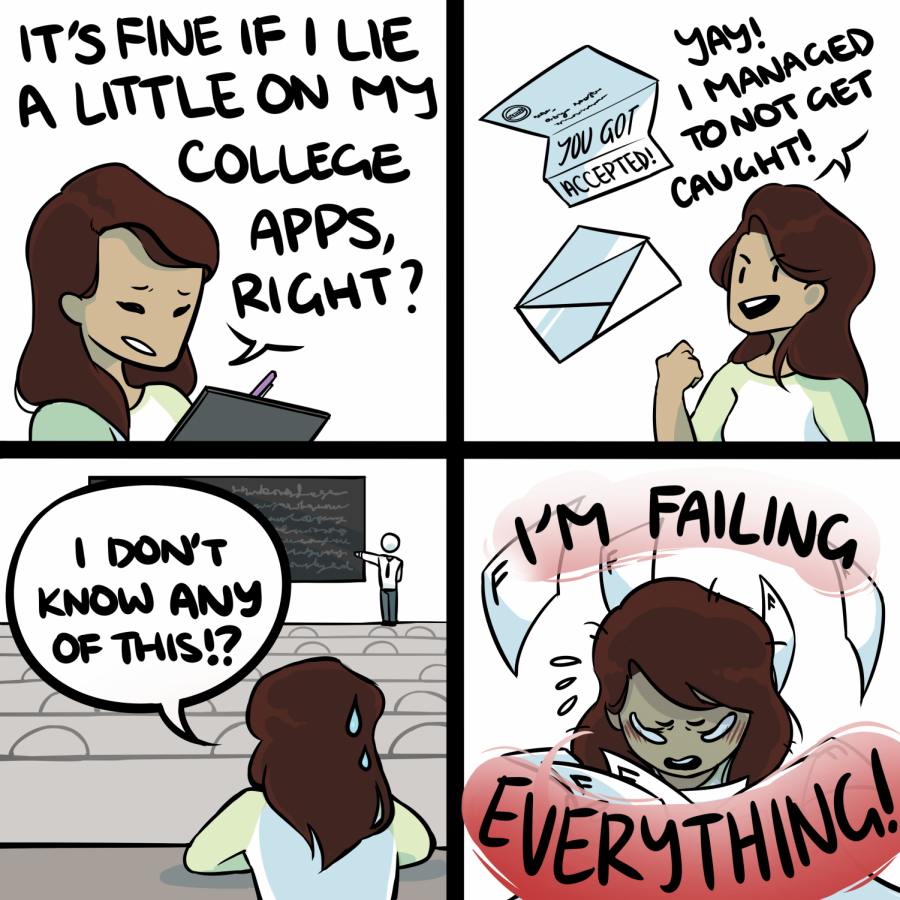False applications highlight loopholes in admissions
February 26, 2019
After years of hard work, a promising high school student receives her college acceptance letters; she has been admitted into an elite Ivy League school. Her grades, extracurriculars, ACT score and essay blew the admissions office away. She celebrates with friends and family, who help her pack her things.
The truth, however, is that none of it was deserved. Her entire transcript was falsified, and it wasn’t just one student.
A recent New York Times investigation uncovered many similar instances at T.M. Landry College Preparatory, a private school in Louisiana. Run by Michael and Tracey Landry, T.M. Landry appealed to families whose children struggled or lagged behind in the traditional education system. Parents enrolled their children in hopes that the school would provide them with a better education and more opportunities than their local public schools.
Unbeknownst to these families, the school was doctoring student transcripts and fabricating hardship stories to appeal to colleges looking for diversity. According to the New York Times, it prepared transcripts with courses students didn’t take and wrote about accomplishments that were never achieved.
While T.M. Landry is a unique case, instances of falsified applications also occur in traditional schools. Individuals may feel the need to lie on their applications in order to increase their chance of admittance.
Some students see college, and acquiring the grades and accomplishments needed to get accepted, as a crucial step in life. Family expectations, peer pressure and self-determination can all affect how much pressure a student feels to succeed in these areas.
“I have so much stress because I really want to do well,” senior Labib Dajani said. “My grades will impact my chances of getting into a good college, and I want to have a good future.”
While some believe their GPA or test scores define their academic success, others believe it isn’t necessary to place these numbers on such a high pedestal.
“You can still go to NOVA and then transfer from there, or you could take a gap year and then start college,” junior Zeyneb Kilinc said. “People stress themselves out too much to a point where they’re not even social anymore.”
Some students conclude that they must enter a top college immediately after graduation to succeed.
“I know many high schoolers believe it is what makes or breaks their future, when in reality, there are multiple paths to take,” junior Madison Wasem said. “That doesn’t necessarily mean you need to go to Harvard with a 4.5 GPA to be successful.”
When grades aren’t enough, conjuring up a hardship story, like those fabricated by the Landrys, can seem like a small and painless lie. However, colleges can reject students for deceitful applications, and students who are academically unprepared for a particular college will likely not perform well. While some alumni from T.M. Landry continued on in college, others struggled in the new environment and found themselves unprepared for the workload and subjects.
“In a sense, I can see the stress of wanting to be perfect on paper,” Wasem said. “In the overall picture of life, it is not a smart decision to lie, because then you will never know if the college wanted you for you.”



